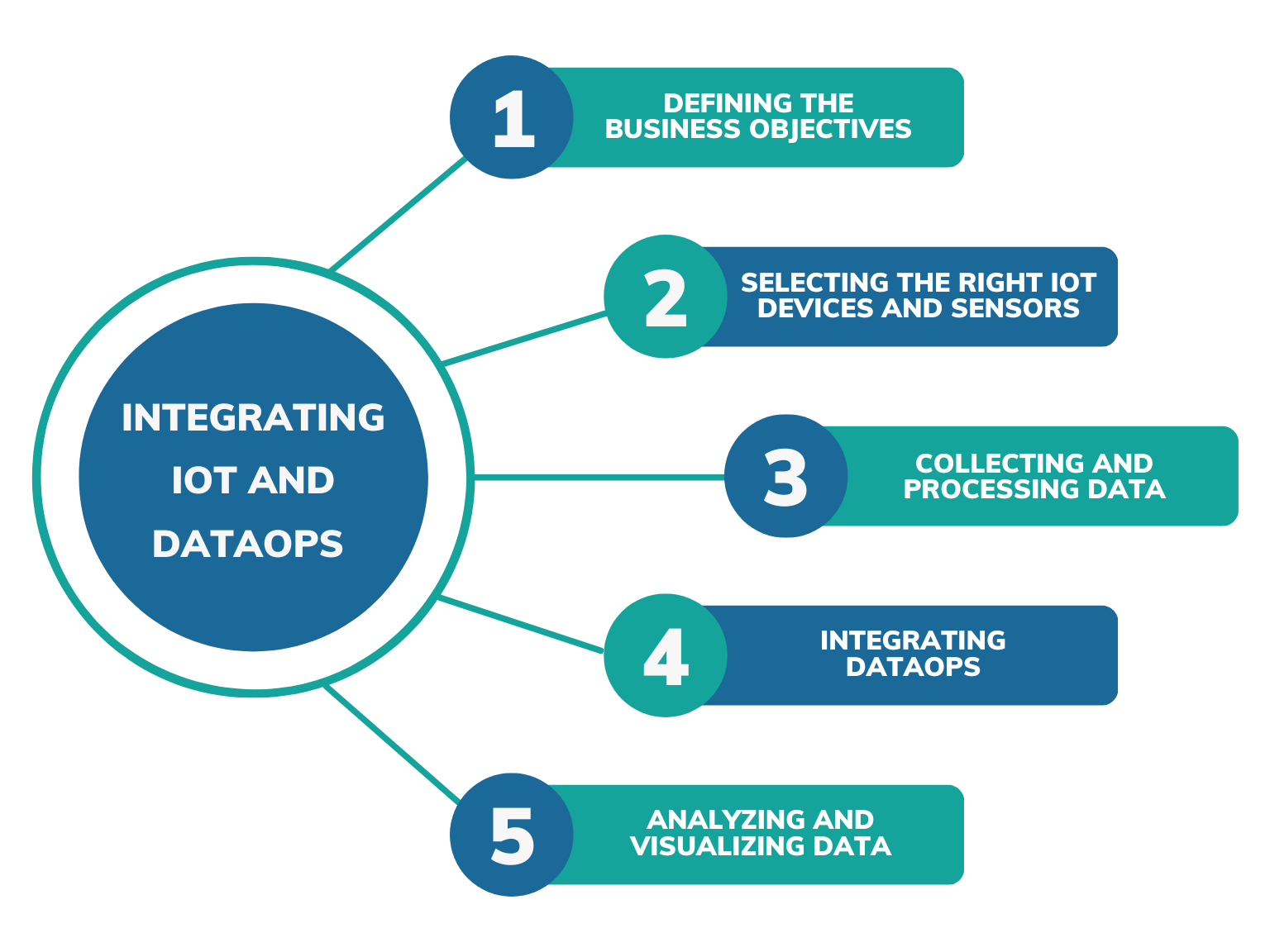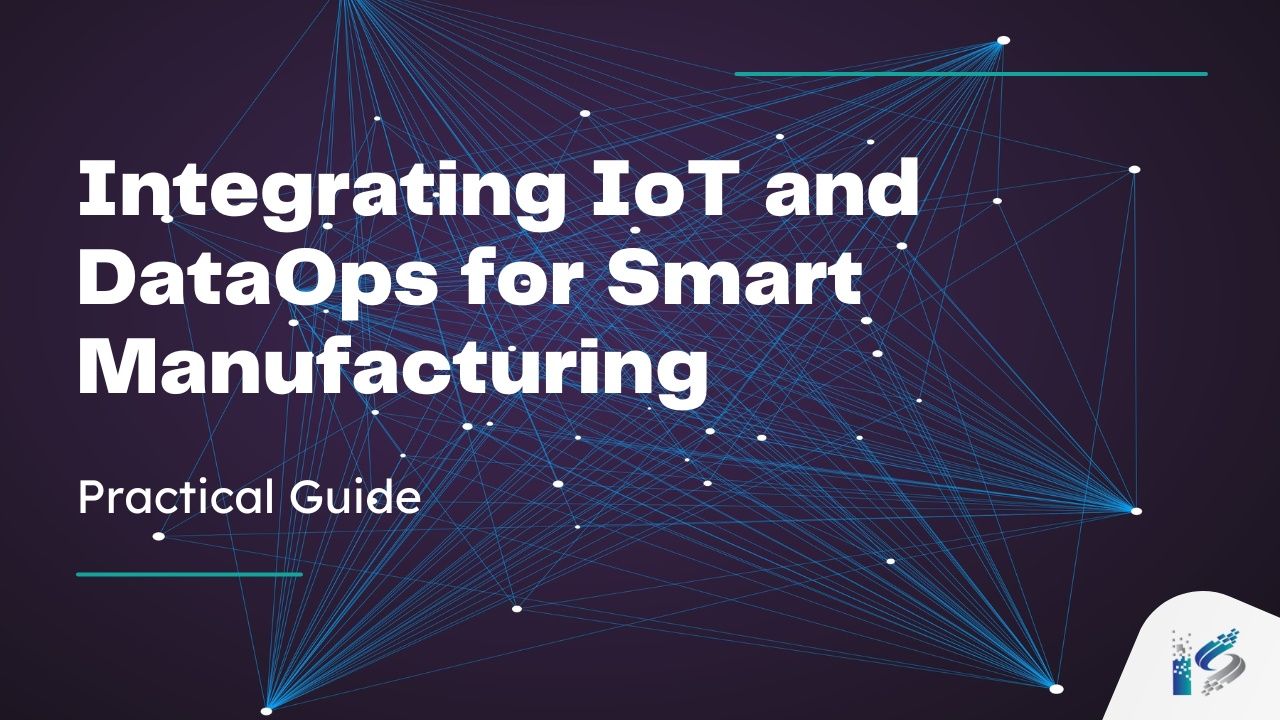As the manufacturing industry continues to adopt more advanced technologies, the integration of the Internet of Things (IoT) and DataOps is becoming increasingly essential for creating a smarter, more efficient manufacturing process. In this practical guide, we’ll discuss the benefits of integrating IoT and DataOps, and provide a step-by-step process for implementing this integration in your manufacturing operations.
Benefits of Integrating IoT and DataOps
The integration of IoT and DataOps can bring a range of benefits to the manufacturing industry. Here are a few key advantages:
Improved Efficiency:
By collecting data from IoT devices and processing it with DataOps methodologies, manufacturers can gain greater visibility into their operations and identify inefficiencies in real time. This can lead to improved production rates, reduced downtime, and better overall efficiency.
Predictive Maintenance:
IoT devices can also help manufacturers predict when equipment will need maintenance or repairs, enabling them to address potential issues before they become major problems. When combined with DataOps, this data can be processed quickly and accurately, allowing for more effective maintenance scheduling.
Better Quality Control:
By collecting data from IoT devices and applying DataOps analytics, manufacturers can gain greater insight into their product quality and identify defects or inconsistencies. This can lead to improved quality control and greater customer satisfaction.

Steps for Integrating IoT and DataOps in Manufacturing
Here’s a step-by-step guide for integrating IoT and DataOps in your manufacturing operations:
Step 1: Identify Key Areas for Improvement:
Begin by identifying the areas in your manufacturing process where IoT and DataOps can bring the most benefits. This may include production efficiency, predictive maintenance, quality control, or other areas.
Step 2: Determine the Right IoT Devices:
Next, determine which IoT devices are best suited for your needs. This may include sensors, cameras, or other types of devices that can collect data about your manufacturing process.
Step 3: Implement Data Collection Infrastructure:
Once you have identified the right IoT devices, you’ll need to implement the infrastructure necessary to collect and process the data they generate. This may include setting up a data warehouse or using cloud-based storage solutions.
Step 4: Apply DataOps Analytics:
With data collection in place, you can then apply DataOps methodologies to analyze and process the data in real time. This may involve using machine learning algorithms, predictive analytics, or other types of analytics tools.
Step 5: Develop Dashboards and Reports:
To make the most of your IoT and DataOps integration, you’ll need to develop dashboards and reports that provide real-time insights into your manufacturing process. This will enable you to identify inefficiencies, monitor equipment performance, and make data-driven decisions.
Step 6: Integrate with Existing Systems:
To ensure a smooth integration, you’ll need to integrate your IoT and DataOps infrastructure with your existing manufacturing systems. This may involve working with IT teams to ensure compatibility and security.
Step 7: Train Your Team:
To make the most of your IoT and DataOps integration, it’s important to ensure your team is trained to use the new technology effectively. This may involve providing training sessions or hiring consultants to assist with implementation.
Step 8: Continuously Improve:
Finally, remember that integrating IoT and DataOps is an ongoing process. Continuously monitor and analyze your data to identify new areas for improvement and refine your processes accordingly.
How ISmile Technologies Will Help
At ISmile Technologies, we specialize in helping manufacturing companies implement IoT and DataOps solutions that drive greater efficiency and productivity. Our team of experts can assist with every step of the integration process, from identifying key areas for improvement to developing custom analytics tools and providing ongoing support and training.
We understand that every manufacturing operation is unique, and we work closely with our clients to develop solutions tailored to their specific needs. Our team has years of experience working with IoT and DataOps technologies, and we are committed to staying at the forefront of industry developments.
By partnering with ISmile Technologies, you can be confident that your IoT and DataOps integration will be seamless, efficient, and effective. Contact us today to learn more about how we can help your manufacturing operation reach its full potential.
Need help on maintaining Azure Security Center Secure Score of Clients?
Our experts can help you on all kinds of works on Azure Security Center.
Conclusion
Integrating IoT and DataOps is an essential step for any manufacturing company looking to create a smarter, more efficient production process. By leveraging IoT devices and applying DataOps methodologies, manufacturers can gain greater visibility into their operations, predict maintenance needs, and improve product quality.
By following the steps outlined in this practical guide and partnering with an experienced technology provider like ISmile Technologies, you can successfully integrate IoT and DataOps into your manufacturing operations and achieve greater success and profitability.








